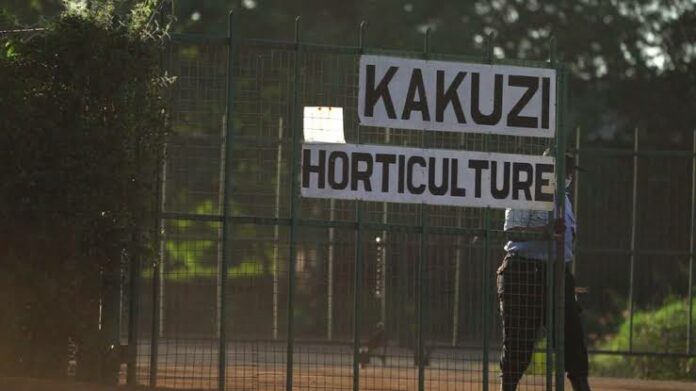The Kenya Revenue Authority (KRA) has launched investigations on Kakuzi, accusing the firm of tax evasions and paying less tax as a result of the cross-border financial deals with its majority shareholder Camellia PLC.
KRA now seeks to establish tax losses from transfer pricing, where companies conduct transactions between different parts of the same organization.
KRA’s suspicion of Kakuzi follows after the Capital Markets Authority questioned Kakuzi CEO and finance officer, Christopher Flowers and Ketan shah respectively, over allegations that Kakuzi PLC was transferring the majority of its profits to the UK, due to its majority shareholder being based there.
“KRA wishes to state that it is currently undertaking internal reviews on transfer pricing and other tax practices of Kakuzi PLC with a view of commencing an in-depth audit work,” said the commissioner for Domestic Taxes at KRA, Rispah Simyu.
“This will enable KRA to establish transfer pricing allegations and the company’s dealings.” She added.
Capital Markets Authority vowed to investigate Kakuzi PLC and its UK-based parent company, Camellia PLC amid allegations of conflict of interest concerning transfer pricing. Transfer pricing is the amount charged when goods or services are sold between two companies located in different countries.
Transfer pricing allows companies to minimize their liabilities by underpricing or overpricing transactions or allocating profits to low-tax jurisdictions.
Minority shareholders at Kakuzi have complained of being locked out of board meetings by Camellia PLC. Camellia PLC by interests in Bordue Limited and Lintak Investments owns a controlling 50.7% stake in Kakuzi.
Kakuzi Producers and some of its subsidiaries such as Eastern Produce Kenya Limited, Robertson Bois Dickson Anderson (RBDA) Kenya and Eastern Produce Regional Services Limited were worth Sh. 369.4 Million at the end of 2021.
Most allegations by KRA of tax evasion or paying less tax are usually settled by having the firms agree to change their transfer pricing and pay additional corporation tax. If the taxman sniffs out any evidence of dishonesty, they open criminal investigations and charges.
“If it is established that there has been a deliberate and clear scheme to defraud the revenue agency and commit fraud, the KRA could institute prosecution of the individuals involved.” Said an individual from one of the Big Four auditing firms who sought anonymity.
Kakuzi’s principal activities include growing, packing and selling avocados, macadamia nuts, blueberries, tea green leaf and forestry products.
The company also engages in livestock farming and the sale of beef. It has a presence in Muranga County in Central Kenya and Nandi County in the Rift Valley.
How Moi left his family Sh. 5.1 billion ‘corruption’ bill
The CMA has stepped up surveillance of agricultural counters for irregular practices that have hurt small shareholders and farmers while benefiting majority owners.
The CMA is also probing Limuru Tea, which is controlled by British multinational Unilever, for suspected undervaluing its 696.8-acre plantation and cooking of books as the multinational prepares to exit the company.
The source at the CMA said Kakuzi was facing challenges linked to its majority owners who for a long time excluded local shareholders from the company’s board of directors.
Kakuzi only appointed its second-largest shareholder, John Kibunga Kimani, as a director in a board shake-up that followed allegations of human rights abuses, including rape and violence.
Dr. Kimani, who was raised on Kakuzi’s farms as a squatter, had previously failed in attempts to get a board seat at the agricultural firm despite owning a 32.2 percent stake in the company worth Sh2.7 billion.
The changes came after law firm Leigh Day said that it was representing victims to launch a legal claim in the High Court in London in 2020 against Camellia PLC for alleged human rights abuses by security guards employed by Kakuzi.
This prompted Camellia, which acquired its majority stake in Kakuzi in the 1990s, to promise reforms in the wake of the allegations that forced firms like British retailer Tesco to suspend supplies, including avocados and macadamia nuts, from the Kakuzi.








